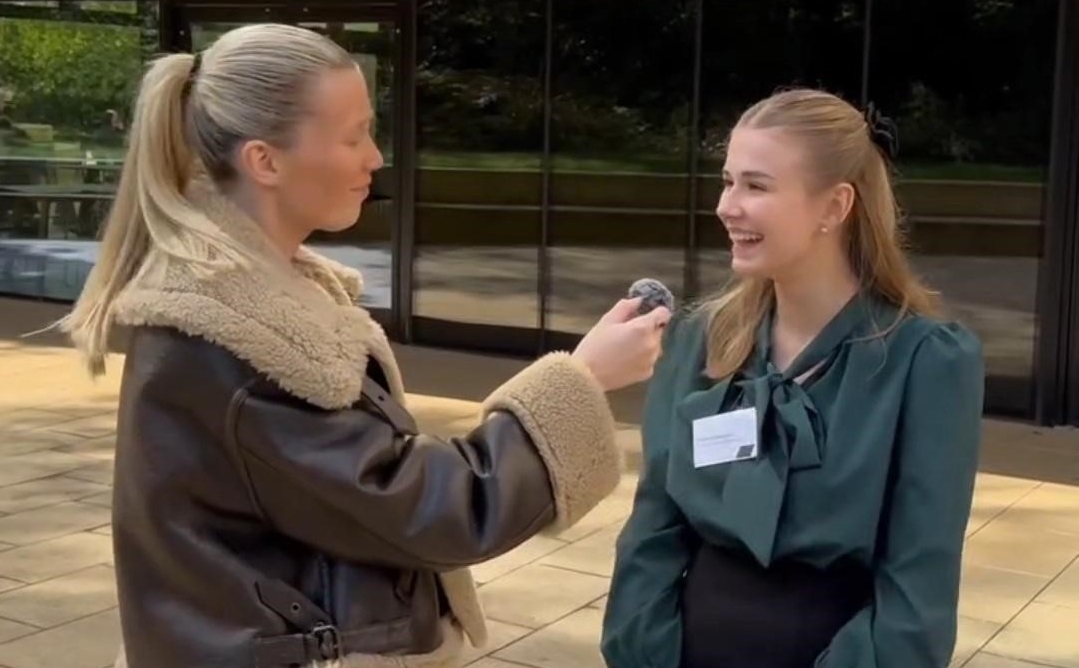Final year student Cristina pushed past her shyness and seized opportunities and the support of brilliant staff to excel in her Economics degree.
Being an Economics student at the University of Kent is both intellectually stimulating and incredibly supportive. University is a big step from high school or college, but Kent makes that transition easier with a strong support network. When I first arrived, I struggled with asking for help. I was shy and always feared I was asking “stupid” questions. However, university completely changed my perspective. Here, asking for help is not only encouraged—it’s expected. The moment you start seeking support and asking questions, no matter how small they seem, you’re already on the path to exam success. From my experience, that shift significantly reduces stress in the long run.
Here, asking for help is not only encouraged—it’s expected.
The university offers support in all aspects of student life—whether it’s mindfulness, academic writing, CV building, or essay writing. Every student is assigned an academic advisor who tracks your progress, writes references, and is your first point of contact for any concerns. Even if they don’t have all the answers, they’ll guide you to the right people. Kent also offers workshops in areas like data analysis, Excel, referencing, presentation skills, and critical thinking. As an Economics ambassador for two years, I’ve seen firsthand the kind of questions students worry about—especially around maths.
A lot of prospective students ask, “Is there a lot of maths?” or “I’m not great at maths, is that a problem?” The truth is, maths is a core part of an economics degree, and it appears consistently throughout the three years. I have been anxious about speaking up and have struggled with maths as well, but at Kent I’ve grown to enjoy it and even excel in mathematical modules.
I have chosen the maths-intensive modules, but they are not compulsory. Throughout this journey, I’ve experienced consistent help with complex maths and models. Whether it’s during office hours or after a seminar, the staff are always happy to go over difficult topics again. From this, I can personally affirm how approachable and understanding the staff are—not only within the Economics department, but also those providing additional academic support.
Another major aspect of the degree is coding. Economics is now a data-driven field, and at Kent, students are taught a wide range of coding languages like Julia, MATLAB, R, Python, and Stata. It might seem overwhelming at first, but the staff are excellent at breaking down how the code works and helping you fix any issues along the way.
The seminar leaders and academics are patient and always ready to help, no matter your coding background.
The support doesn’t end at graduation either—Kent offers career and academic advice for up to three years after you leave. Whether you’re applying for jobs, internships, or postgraduate study, the guidance is there. Personally, the department supported me from internship applications to eventually receiving a Master’s offer from the University of Cambridge. Learning to step out of my comfort zone, ask questions, and seek help has not only shaped my academic journey but also helped me grow as a person.
Finally, my advice to anyone starting out is to enjoy your time at university. Academics are important, but so are friendships, societies, and the experiences that make university life meaningful. Embrace it all.
Find out more about the Economics BSc at Kent.

